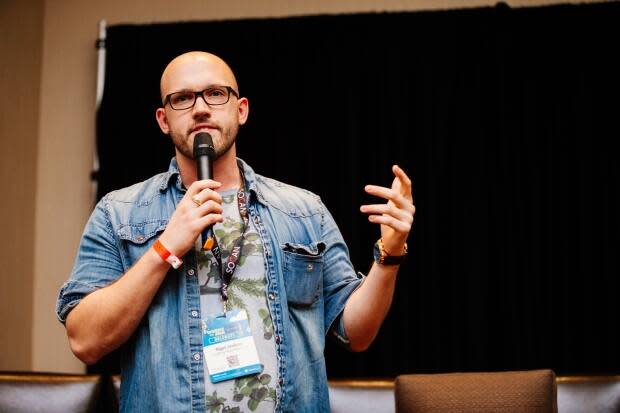N.L. music professionals could be out thousands in revenue as SiriusXM ends contract with CBC

Following SiriusXM's announcement that it will not be renewing its contract with CBC Music, musicians and other industry professionals in Newfoundland and Labrador fear it will mean a loss of thousands of dollars in revenue for the province's artists.
In a world where online streaming pays fractions of a penny per play, said St. John's-based artist Carolina East, a major part of her income came from satellite radio play.
"With SiriusXM and satellite radio you're getting $43 a play. So obviously if you're on those channels and you're in heavy rotation, which I've always been, you can do the math," said East, whose real name is Carolann Fowler, in a recent interview.
On Oct. 1, SiriusXM announced it would not be renewing its contract with CBC Music.
For years, CBC Music programmed four satellite radio stations for SiriusXM: CBC Radio 3 Classic, CBC Country, ICI Musique Franco-Country and ICI Musique Chansons.
Now the company has created five new channels and says it will program its own content.

It's not just artists who are at risk of losing money. The whole music industry is build around the royalties that come from radio play.
Nigel Jenkins of Laughing Heart Music — a record label, publishing, and artist management company in Steady Brook —says his company's share of royalties was at least $3,000 a month from one station alone.
Now that a major company is programming the channel, he fears popularity will be more of a priority so the middle-tier and emerging artists he represents may not get the same attention as before.

"I hope there will continue to be a focus specifically on emerging Canadian talent because when they mention acts like Drake and the Weeknd, that's wonderful and I'm sure is great at driving advertising dollars and subscriptions," said Jenkins.
"But for those of us working at the emerging and sort of mid-tier levels of the industry, it's maybe not going to be enough to replace this really significant revenue source that has just been wiped out overnight."
CBC asked SiriusXM for an interview but was directed to an online statement that said, "We remain committed to Canadian music and artists, and our Canadian lineup of programming will continue to reflect that."
CRTC requirements dictate that SiriusXM must provide three French-language stations, three English-language stations and one Indigenous languages station. Their licence also requires them to play 85 per cent Canadian content, a quarter of which must be new music (six months old or less), and forty per cent of which must be emerging artists (those who have not charted or reached Top 40 position on pop charts or Top 25 on country charts).
While not all hope is not lost, East said, fans can do a lot to support their favourite artists.
"Following us on social media, posting about us on social media, emailing requests at local radio stations and beyond, it's worth its weight in gold because the more noise that people make, the more we're going to be heard across Canada — and the world, even," said East.

After struggling under the COVID-19 pandemic and the rising cost of touring, and amid the overall competition in the market, Jenkins hopes fans and governments of all levels understand the importance of supporting local artists.
"It's been seen time and again that the music sector shows up in a really meaningful way when things happen in this province to support others. And so getting some of that support back from the community and from the provinces, what we're fighting for and what I'm I'm sure will happen with lots of lobbying and raising of our voices collectively," said Jenkins.
The true impact of the changes won't be known for a few months. Both the Society of Composers, Authors and Music Publishers of Canada and Sound Exchange in the United States pay their royalties each quarter, with each payout dating eight to 12 months prior.


